When it comes to establishing a solid foundation for any professional relationship, a performance-based contract agreement is key. This type of contract clearly outlines expectations, metrics for success, and the rewards tied to performance, ensuring that both parties are on the same page. With transparency and accountability at its core, this agreement not only fosters trust but also motivates all involved to deliver their best work. Curious about how to craft the perfect performance-based contract? Read on for expert tips and a comprehensive template!

Clear Scope and Objectives
A performance-based contract agreement outlines the clear scope and objectives necessary for effective collaboration between parties in a business context. The agreement should specify quantitative metrics such as performance indicators (KPIs) that gauge success, including targets like delivery timelines, quality standards, and financial benchmarks (for instance, a 15% cost reduction by the end of Q4). Important timelines (such as initiation and completion dates) must be precisely detailed, alongside milestones that signify progress. Additionally, defining the roles and responsibilities of each party helps delineate accountability, ensuring all stakeholders understand their obligations in achieving the specified outcomes. Clarity in communication channels and reporting structures is crucial for addressing issues promptly and ensuring alignment throughout the contract's duration. Ultimately, a well-defined agreement serves as a roadmap that guides efforts towards shared goals, enhancing the likelihood of successful project completion.
Performance Metrics and Criteria
Performance-based contract agreements delineate specific performance metrics and criteria essential for assessing the fulfillment of obligations. Key performance indicators (KPIs) can include delivery timelines, quality standards, and customer satisfaction levels. For instance, a project may stipulate a maximum allowable delay of 5% beyond the contract deadline, ensuring timely completion in stipulating projects like construction in New York. Quality criteria might specify that at least 90% of products must meet established industry standards, particularly in manufacturing operations. Additionally, regular assessment intervals, such as monthly reviews and quarterly evaluations, can measure adherence to these metrics, fostering accountability and continuous improvement. Failure to meet these criteria may result in financial penalties or other corrective actions, ensuring stakeholder interests are prioritized and upheld.
Compensation and Payment Terms
A performance-based contract agreement establishes clear compensation and payment terms linked to the achievement of specific objectives or metrics. Compensation typically includes a base fee, outlined as a fixed sum or percentage, which serves as a guarantee for services rendered. Additional bonuses or incentives are often tied to performance indicators, such as achieving a designated sales target (e.g., 20% increase in quarterly revenue) or completing a project ahead of schedule (e.g., two weeks sooner). Payment terms detail the frequency of disbursements, such as monthly or quarterly payments, and stipulate conditions for milestone payments, for example, upon reaching specific project phases or results. Clear stipulations regarding invoices, due dates, and penalties for late payment ensure transparency and accountability for both parties.
Duration and Termination Clauses
Duration and termination clauses in a performance-based contract agreement outline the specified time frame for the agreement's validity and the conditions under which either party may terminate the contract. Typically, a duration of one to three years is established, depending on project complexity. Termination clauses provide options for early termination due to various factors such as non-fulfillment of performance metrics, breach of contract, or mutual agreement. Specific notice periods, often 30 to 90 days, are usually required to ensure fair communication and adjustment. Additionally, consequences of termination, including potential penalties or obligations for payment for work completed, need to be clearly articulated to prevent disputes. The overall goal is to protect the interests of both parties while ensuring accountability and performance throughout the contract period.
Review and Revision Provisions
A performance-based contract agreement often necessitates specific provisions for review and revision, ensuring adaptability and responsiveness to changing conditions. Evaluation metrics (such as key performance indicators or KPIs) are crucial, dictating how and when assessments occur, often on a quarterly basis. Stakeholders (including the contracting agency and service provider) may require periodic meetings in designated locations (such as corporate offices or project sites) to discuss performance outcomes and any emerging challenges. Revision clauses should clearly detail the procedures for making amendments--such as timelines for notifications, thresholds for re-evaluating terms, or criteria for performance adjustments--aiming for transparency in the process. The agreement might also outline penalties for subpar performance or rewards for exceeding expectations, promoting continuous improvement. Other entities (like third-party auditors or independent consultants) may become involved to ensure impartial evaluations and recommendations.

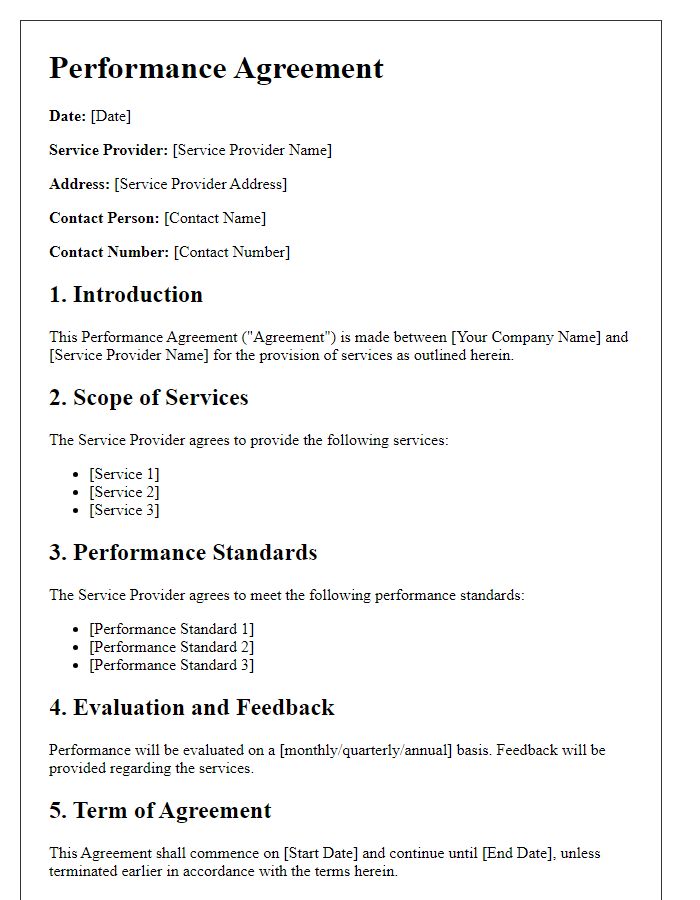
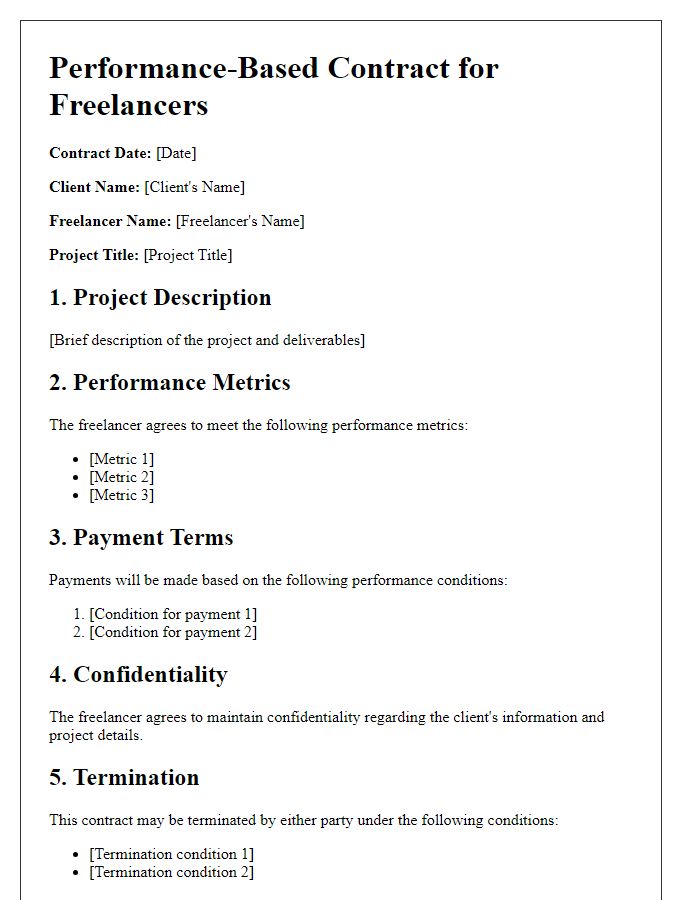
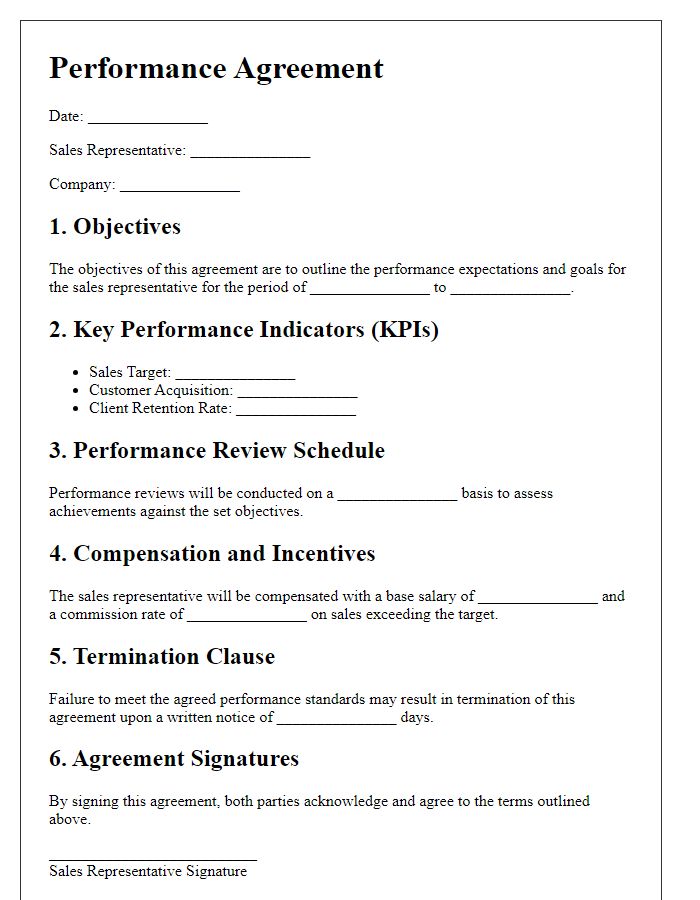
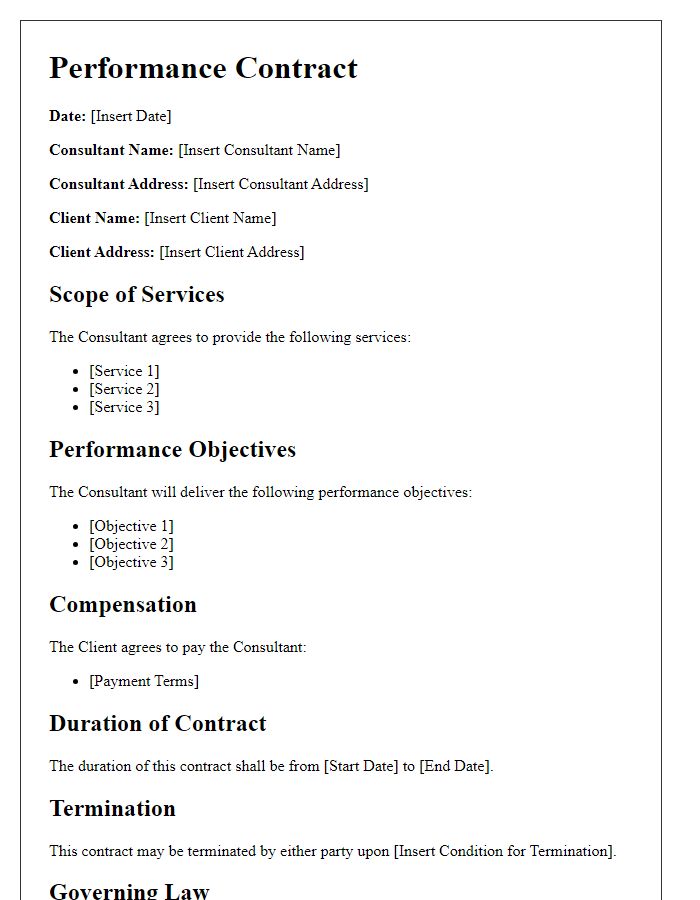
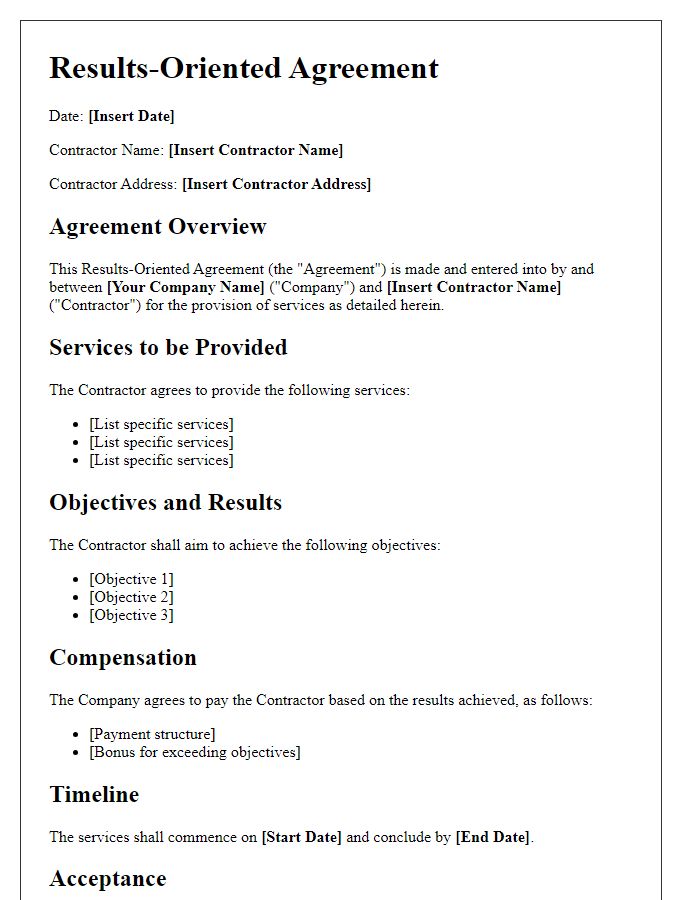
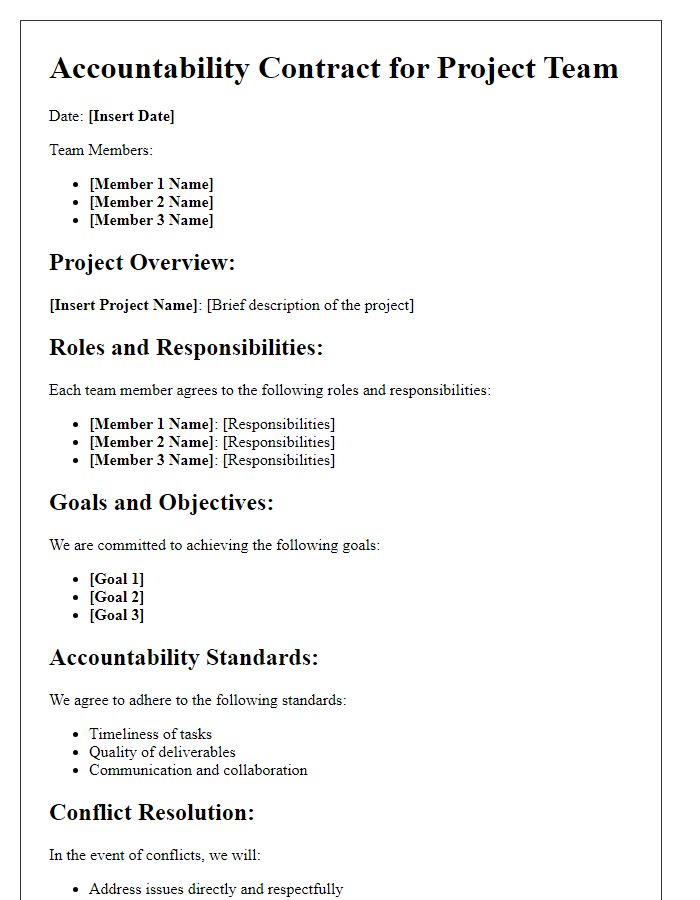
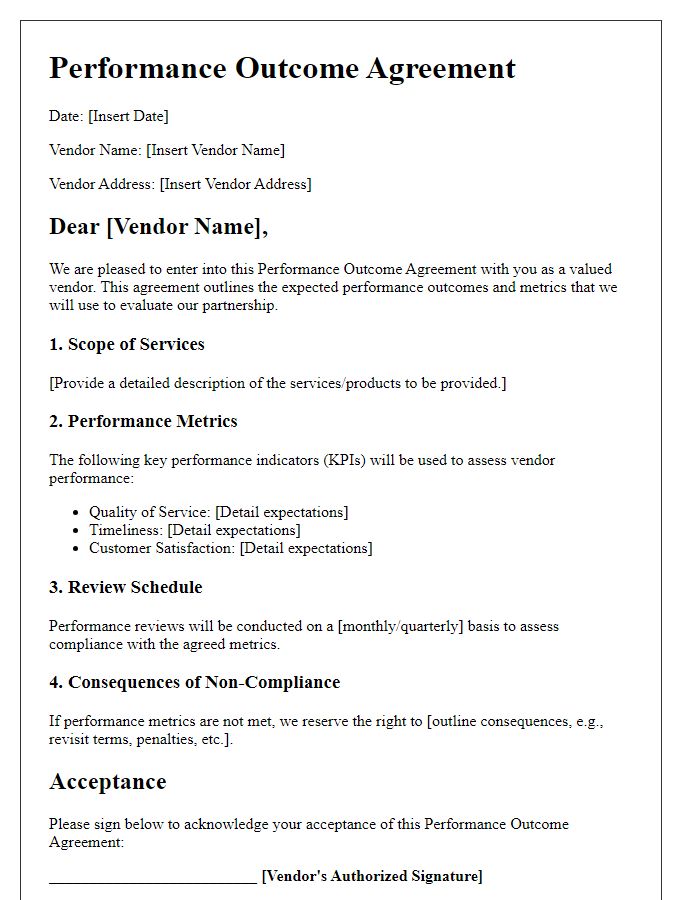
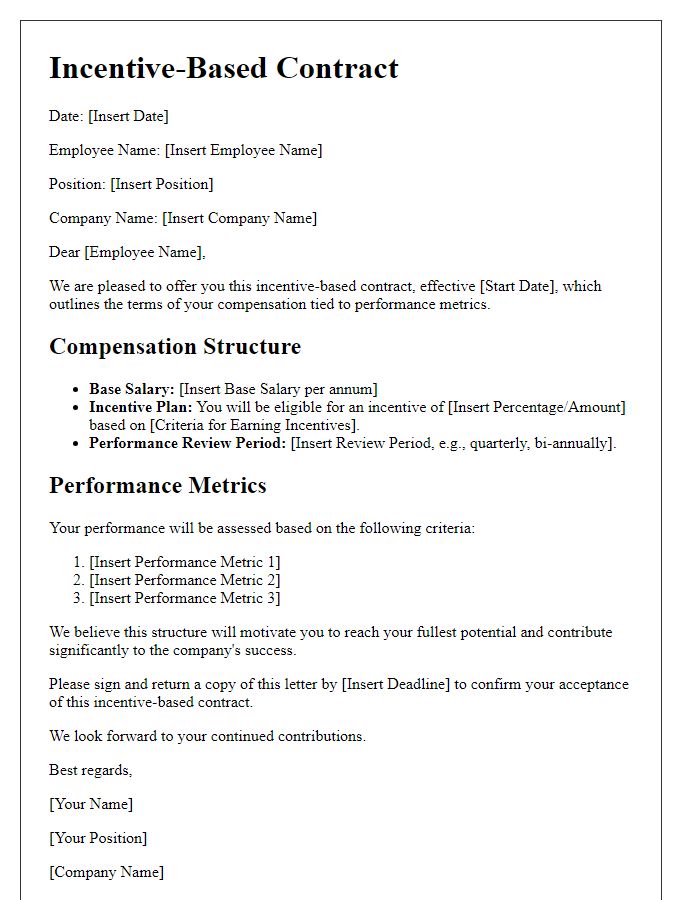
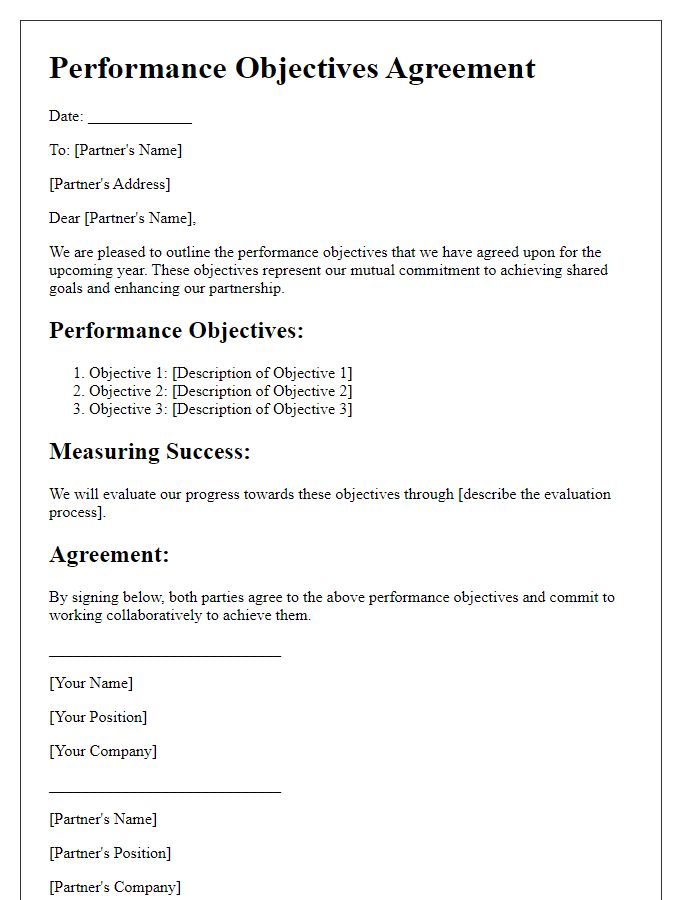
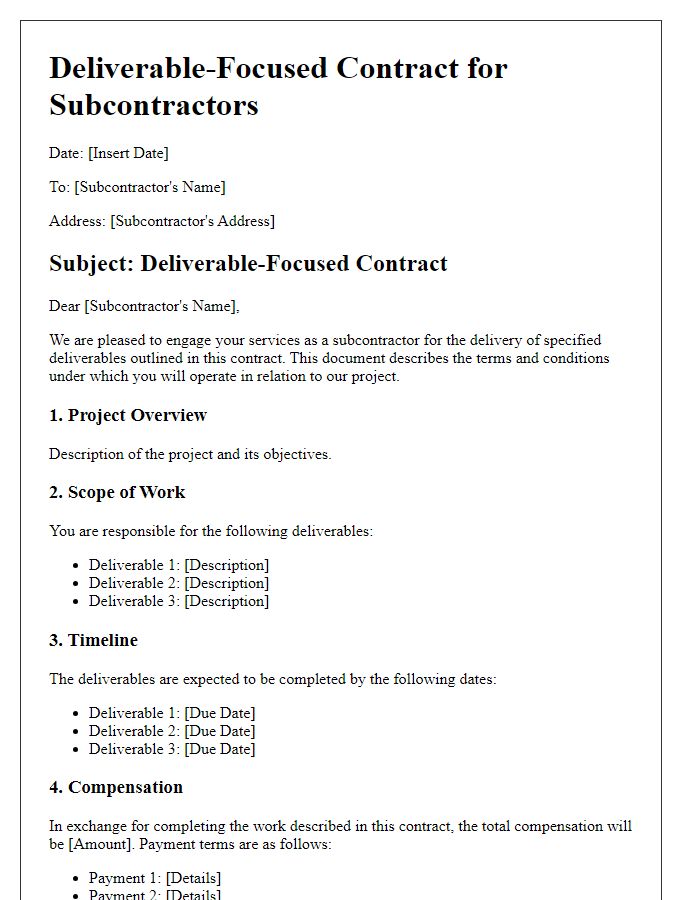


Comments